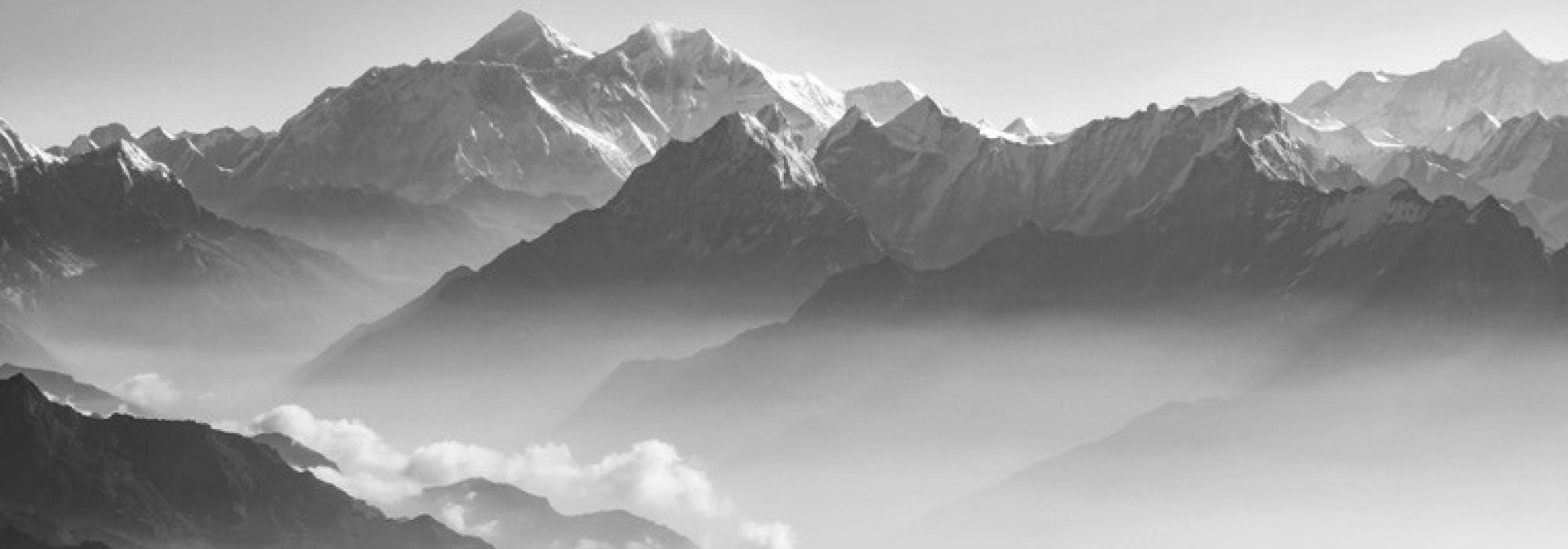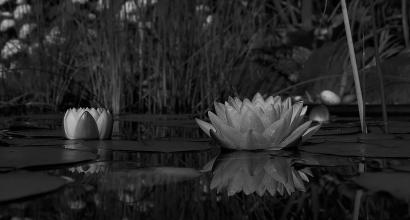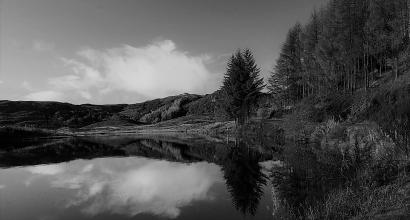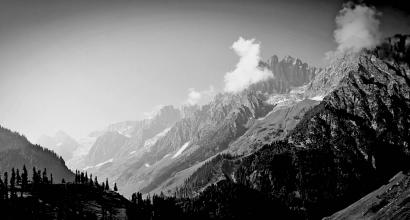It’s the irony of fate that on the exact day India achieved political independence—15th August 1947—Sitarama Shastri lost sight in his good eye and therefore became completely blind. Those days, there was an attempt to bring Daulat on screen, and in relation to that he had been travelling to many places. Noticing that his sight was becoming blurred he asked the then famous eye specialist Dr. B K Narayana Rao for a different pair of spectacles.
The specialist examined his eyes and said, “Now there is no use from a different pair of glasses. Your eyesight is damaged beyond repair.”
Meeting Maharṣi Daivarāta
Śṛṅgeri Taluk was donated to the Śāradā-pīṭha by the then king of Mysore along with the right to collect taxes. After Independence the Congress government decided to revoke these rights. During these troubled times, the Jagadguru of Śṛṅgeri, Śrī Abhinava Vidyā-tīrtha sent someone to the Śankarā Maṭha in Bangalore. He was Maharṣi Daivarāta. He was an adherent of Brahmacarya residing in Gokarṇa. He was around four feet tall, with a fit body resulting from Yoga, dark complexion, bright eyes and thick beard, reminded one of the great Vedic Ṛṣi Agastya . Three lines of vibhūti adorned his forehead, and he wore a white dhoti spanning four yards. While this was his outward appearance, his fame knew no bounds! Few pages in the autobiography of the first president of India Sri Rajendra Prasad, was dedicated to him. After a discussion spanning a few hours it became evident to Shastri that he was talking to someone who was of a rare breed!
A series of symposiums on Vedas were arranged by Shastri, presided by Daivarāta in the auditorium of Jayacāmarājendra Samskṛta Pāṭhaśālā, and in a short span of time, many scholars gave insightful discourses. Whenever the scholars gave discourses in kannada, Maharṣi would quote the original ṛks from memory. When Karlamangalam Srikanthaiah, who had analysed Siribhūvalaya of Kumudendu Muni as per Saṅkhyā-śāstra and retrieved kannada phrases from it, gave a discourse on comparative analysis of Vedas and Avesta, Maharṣi quoted ṛks again and again and silenced him. Shastri then addressed the stunned gathering and declared that, in his travels around the country he has never seen a scholar of the stature of Daivarāta when it comes to the Vedas and Daivarāta is indeed the personification of the Veda-puruṣa himself.
The king heard about this and wanted to see Daivarāta, Shastri made the arrangements, and the Maharṣi entered the palace premises in his usual attire. The palace officials, with all humility informed him that the king wouldn’t like to see him like that. Maharṣi replied that he wouldn’t change his attire for the king and also he is not the one who requested for this meeting, but it was the king! Hearing this the king himself came out and received him with great respect. After the interaction spanning a few hours, the king as a token of respect offered him flowers and fruits with the dakṣiṇā and two shawls, all placed on a silver platter. Maharṣi just saw it, partaking of it through his eyes, blessed the king and left the palace. The palace officials followed him and requested him to take it. Maharṣi informed them that he does not accept anything offered to him on silver platters! After persuading him for a long time, saying his refusal would lead to inauspiciousness to the king, he told them that he would accept it for the sake of decorum but he wouldn’t take anything from it, all the contents should be sent to Gokarna.
His behaviour had a long lasting impact on Shastri and even after a long time whenever he would remember Daivarāta, he would say, “He is the high standard of Brahminism one should try to emulate when it comes to aparigraha”.
In the office of Times of India
Shastri was always interested in traveling irrespective of whether it was related to his work or not. Once when he was in Bombay, he came to know that Mirza Ismail was also there, he went to the hotel where he was residing to meet him. After having a long discussion followed by lunch, Ismail said, “I've been invited to a tea party by 4 pm, please accompany me. We can go together.” Shastri agreed at once. He didn’t bother to ask for further details and Ismail didn’t say anything more.
The car arrived at the ‘Times of India’ office. The newspaper had a huge reputation and the editor during those times was an English gentleman. They were welcomed with utmost respect. Ismail introduced Shastri in his usual way, “He is the disciple of the illustrious Śāradā-pīṭha of Śṛṅgeri, a great scholar and a fearless journalist. Personally a great friend but politically speaking my greatest foe!” Shastri went around the office meeting various people in all the departments and was thoroughly impressed. By the time they were about to leave, Shastri who had entered the premises as a guest had become a friend to one and all. Ismail asked him to share his overall experience, Shastri replied, “If you offer me half the kingdom of Mysore and this office, I’ll gladly pick this office!” The editor was mightily impressed seeing that a journalist could share his opinions frankly in front of the dewan of his state. He felicitated both Shastri and Ismail and said to Shastri, “If someone asks you to introduce yourself, don’t just say you are a journalist, say that you are a ‘born journalist’!”
The current article is an English adaptation of the Kannada original which has appeared in the Dīvaṭikegaḻu, authored by Nadoja Dr. S R Ramaswamy. Some parts have been adapted from the booklet titled - 'Virakesari' Sitarama Sastri - published as part of the series Mulukanadu Mahaniyaru. Thanks to Sri Hari Ravikumar for his edits.







































